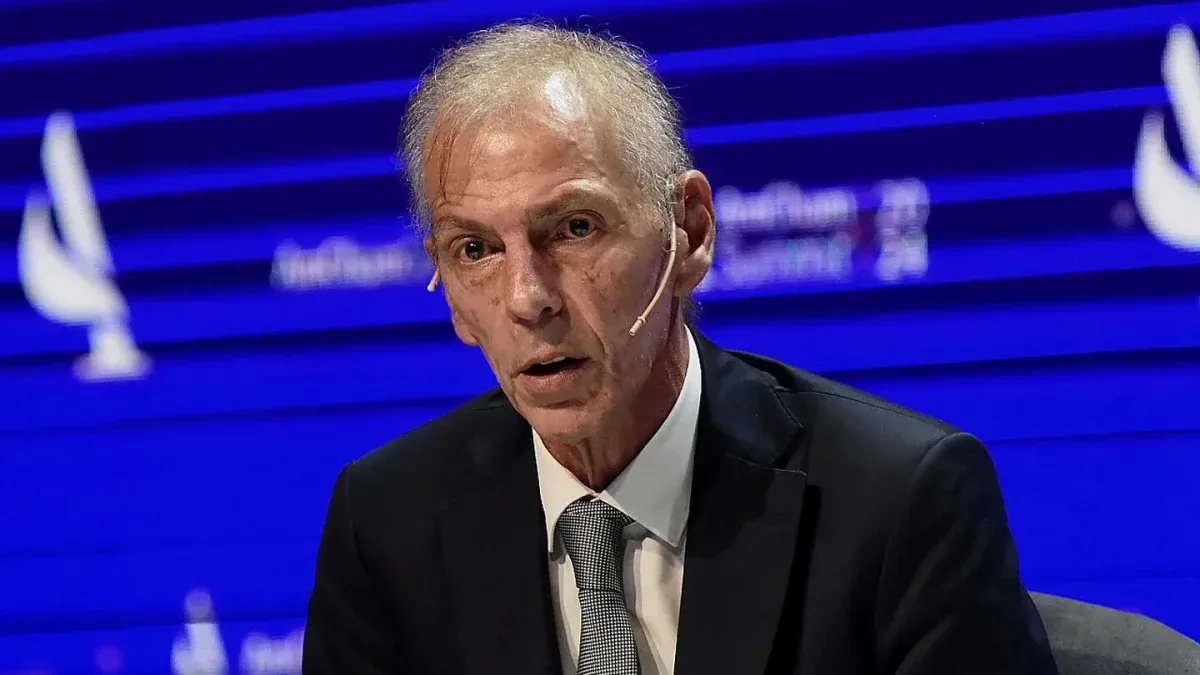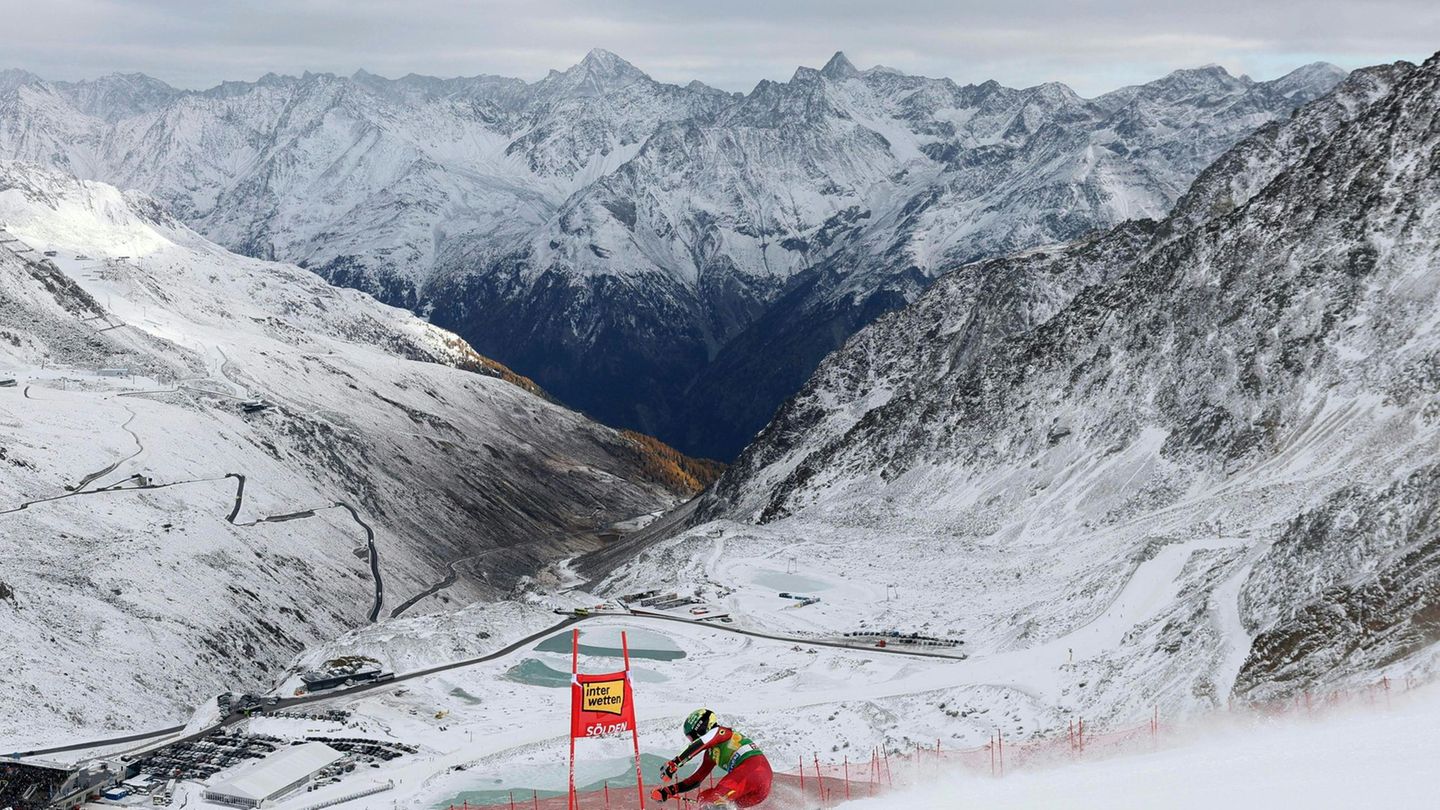The Secretary of Energy of the Nation, Eduardo Rodríguez Chirillowill leave his position in the next few hours, as confirmed Energy Report from sources close to the outgoing official and the Ministry of Economyon which the portfolio depends.
Why is Chirillo de Energía leaving?
One of the reasons given is the need for more time to treat his long-standing illness, which in recent months has complicated his daily management, and even some trips and presence at public events.
Embed – https://publish.twitter.com/oembed?url=https://x.com/chirilloeduardo/status/1846964487846613010&partner=&hide_thread=false
Today I presented my resignation as Secretary of Energy of the Nation for personal and professional reasons that I consider appropriate to address at this time.
I want to thank the President of the Nation so much @JMilei like the minister @LuisCaputoAR for the trust placed in me…
— Eduardo R. Chirillo (@chirilloeduardo) October 17, 2024
However, strictly off the record, in Economy they are very concerned about a possible “energy crisis” due to high temperatures in the summerand they talk about “lack of foresight” in the energy supply, despite Chirillo launching a specific plan to avoid it. Also mentioned are the inconveniences that the short circuits would have generated and the obstruction of diplomatic and business ties with Brazil and Bolivia.
The straw that broke the camel’s back: energy subsidies
A qualified source also assured a recent note from Energy Report on the lack of registration of 1.4 million households in subsidies so as not to lose the benefit, and growing public spending in the energy sector due to failure to apply a successful model of cutting and equitable distribution of this assistance, It was the straw that broke the camel’s back.
Who wins with the departure of Rodríguez Chirillo?
The decision had been under consideration for weeks. Even, as this media learned, Chirillo had previously presented his resignation up to three times due to differences with the Economy. The last one had been when it was publicly known that Daniel González had landed in the energy portfolio to “take charge of everything.” Now, with this departure, it is confirmed that the universe of Argentine energy – and soon mining – remains under the wing of Daniel González, former CEO of YPF and current Secretary of Energy and Mining Coordination, that has direct dialogue with Luis Caputo, his friend and former classmate.
Since the beginning of this week, rumors about Rodríguez Chirillo’s departure began to circulate. In fact, aware of their surroundings, they decided to create and disseminate a video with the most important “milestones” of their management in Energy. “It was a test of sustainability, but also of farewell”played by a colleague of the Secretary who has known him for many years.
What did Luis Caputo say after the departure of Rodríguez Chirillo?
The Minister of Economy, Luis Caputo, published a message on social networks where he explained the reasons for Chirillo’s departure.
Embed – https://publish.twitter.com/oembed?url=https://x.com/LuisCaputoAR/status/1846960487147213017&partner=&hide_thread=false
Today I received the resignation of @chirilloeduardo as Secretary of Energy.
He told me that given the health problems he has had, and that although he feels much better now, he is going to need more time for himself.
Together with Daniel González we have asked him to stay as…— totocaputo (@LuisCaputoAR) October 17, 2024
Who will replace Chirillo in Energy?
The replacement decision is defined. Caputo and González decided it. The sources consulted indicate that it would be Maria Tettamanticurrent general manager at NRG Energía SA and former general director of Camuzzi Gas Pampeana. She is an economist, graduated from the University of La Plata, and has a Master’s Degree in Economics from the University of CEMA. He also worked at Grupo Albanesi and Meridional SA.
image.png
Tettamanti has not only the confidence of the minister and the secretary, but also of Mauricio Macri. He was also responsible for gas in the energy team of Patricia Bullrichheaded by the former Secretary of Energy and Mining of the Nation, Emilio Apud. He worked in various companies in the energy sector, in the field of hydrocarbon production, marketing and distribution of natural gas.
As director of Cammuzzi, Tettamanti participated in the Ámbito Dabate cycle in 2022where he analyzed the current challenges that the sector in general is going through and referred to the situation in which the country finds itself in the face of the energy transition.
“The energy transition is something that is in process. My opinion is that Argentina is a little behind in the way of thinking about this transition. If we go specifically to what gas distribution is, we are in a segment that has not found the way to make the service accessible, without compromising investments and development of the sector.. We have that pending. We always think about what rate to apply and we don’t think about what’s coming. And my fear is that it will catch us off guard. The world is thinking about regulation for the sector in the face of the energy transition. And here we are very far away,” he said in that interview.
María Tettamanti and her vision of the future of gas and LNG for Argentina
The candidate to replace Chirillo also referred to the potential of gas Dead Cow. “The perspective that Argentina has in the development of Vaca Muerta is enormous. The potential is huge, but infrastructure is the bottleneck. The distributors are the last link in the chain,” explained Tettamanti, who detailed: “This gas can be consumed in the country, if the conditions for production are met, or it can be to generate electrical energy; or it can be for direct consumption. But that will require the growth of more networks.”
In that sense, the former Camuzzi director highlighted at that time the potential that gas has as a resource for the country: “In Argentina we have very seasonal consumption, in the winter. Most of it is used for heating, in the residential sector. In order for gas producers to be able to produce stably throughout the year, exports are needed in the summer. But for that you need an infrastructure. And that’s what they’re talking about.”
Source: Ambito




